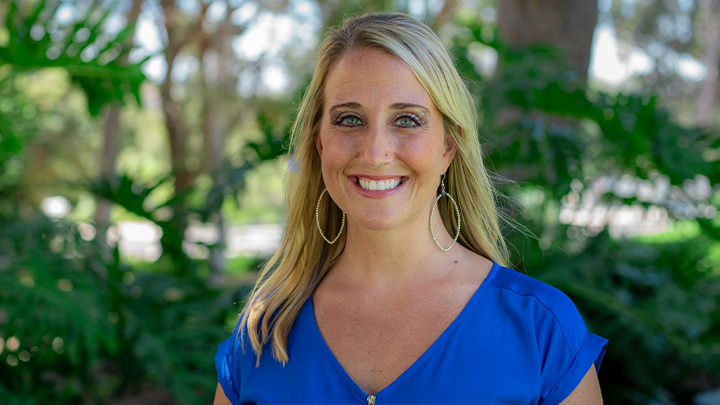Collins elected VP of Council for Exceptional Children's Division of Emotional and Behavioral Health

Name the challenging classroom behavior and Lauren Collins has probably been on the receiving end of it. As a young special education teacher in her home state of Virginia, she was cussed out, kicked, and even slapped.
She’s experienced the kind of incidents that might drive a less inquisitive teacher out of the profession. Instead, Collins chose to make improving outcomes of children with emotional or behavioral disorders (EBD) her life’s work.
“They're some of the most awesome kids you’re ever going to meet,” said Collins, now an associate professor of special education at San Diego State University. “If you've taught kids with EBD, you know that their behaviors are really tough, but once you connect with them, they’ll have your back like no other kids you've ever taught.
“That’s why I'm really passionate now about trying to enlist new special ed teachers to not be so afraid of teaching this population. If you’re trained appropriately — if you have the skills and you know the strategies and supports — then you can do the job.”
That’s the lens Collins now brings to a new leadership position. In March, she was elected vice president of the Council for Exceptional Children's Division of Emotional and Behavioral Health (DEBH). The Council for Exceptional Children is the largest professional organization dedicated to improving outcomes for children and youth with disabilities.
Collins, who has been involved in DEBH since she was a graduate student and previously served as secretary, is excited for the opportunity.
“It's been my professional home for a long time, so it does feel like quite an honor to be selected for this position,” Collins said. “It's a really exciting way to be able to bring our collective knowledge and energy together to see how we can improve the outcomes of students with EBD.”
From both her teaching experience and academic expertise, Collins knows that there is a function to challenging behaviors in the classroom — children are either trying to obtain something or escape something. It’s typically rooted in previous experiences or skill deficits.
And as challenging as these behaviors can be for education professionals, they’re far more concerning for the children themselves. Students with EBD are at significantly heightened risk for expulsion and other exclusionary discipline. That leads to what Collins calls the cycle of removal, where students are removed from the learning environment and fall further behind in their skill building, which causes them to act out further when they return.
“Those poor school outcomes follow them later into life,” Collins explains. “They have difficulty making and keeping friends and getting jobs. They're highly at risk for substance abuse and incarceration — just really dismal outcomes.”
The key to breaking the cycle, Collins said, is to train educators on research-tested, positive, and preventative strategies — and offer them coaching, feedback, and support.
In her courses at SDSU, she shares anecdotes of her experiences as a classroom teacher to help students identify the function of challenging behaviors and think about how strategies can be practically implemented. In her leadership role with DEBH, she is eager to similarly help narrow the gap between research and practice.
“There are all these things we know in research that work, but we're not getting through to educators,” Collins said. “ I put that on us. I think it's incumbent on the research community to translate it. So I’m thinking about what we can do to develop some novel and innovative ways to provide our practitioner members with resources to support their everyday teaching.
“That's what I'm really excited about.”

